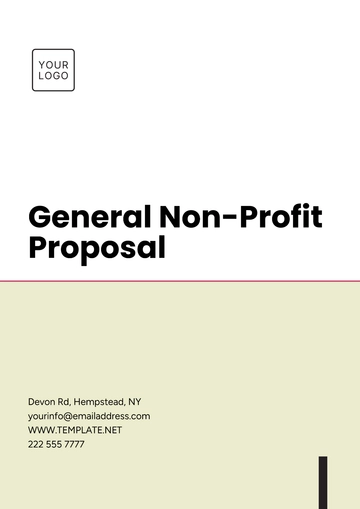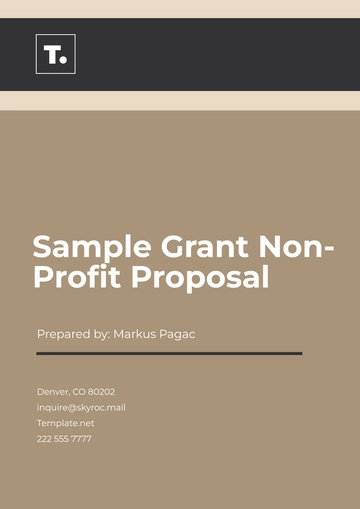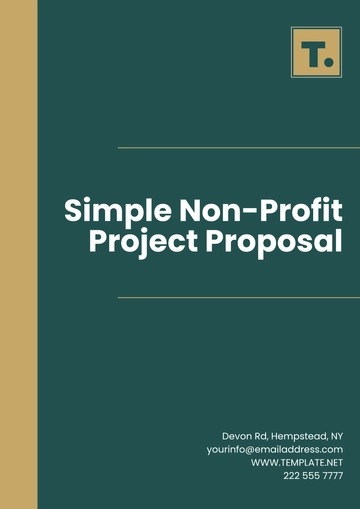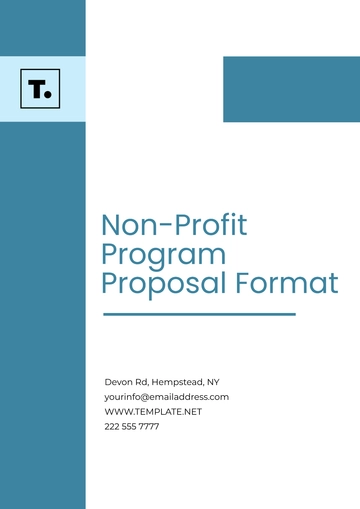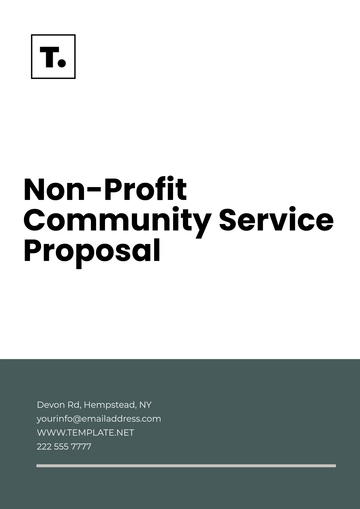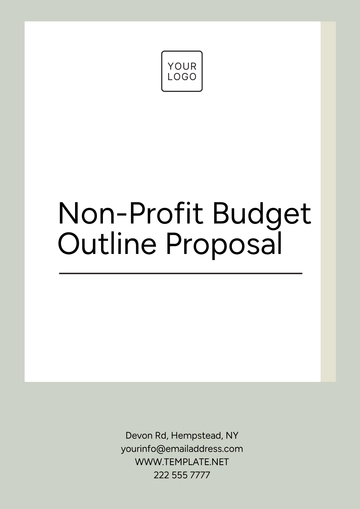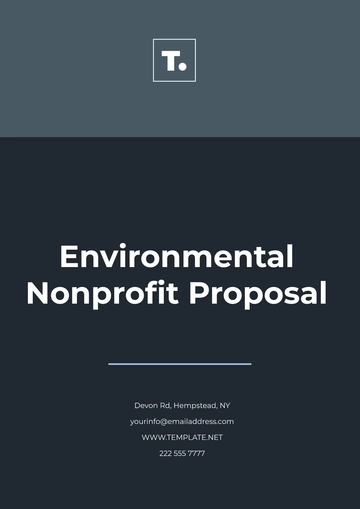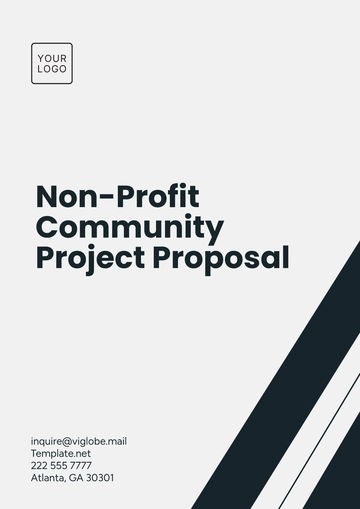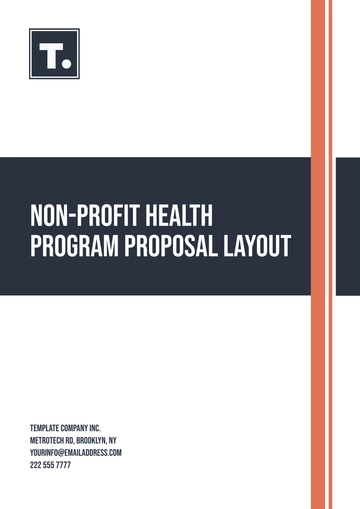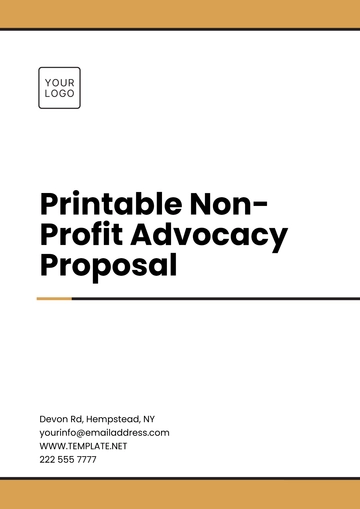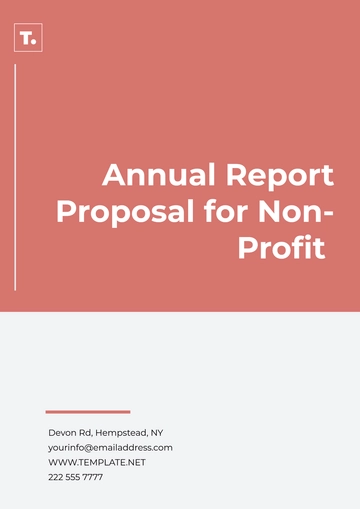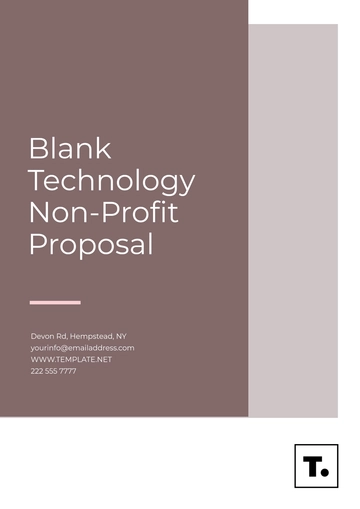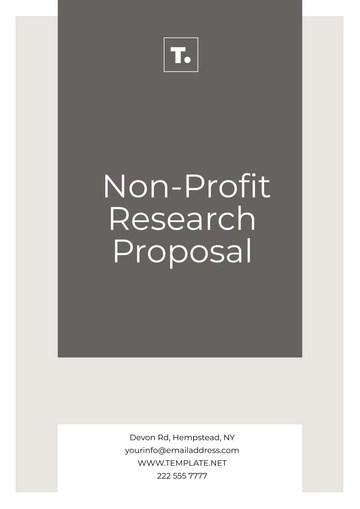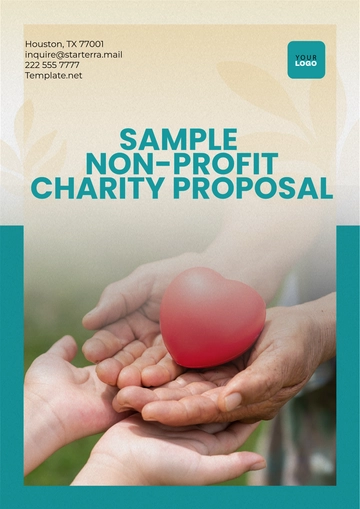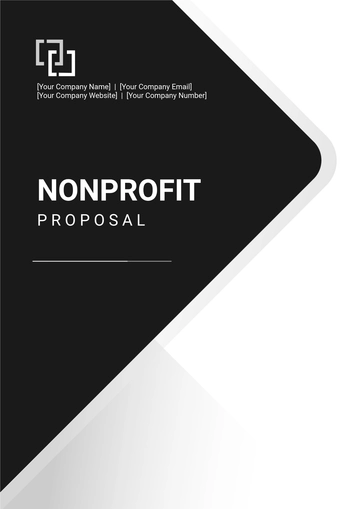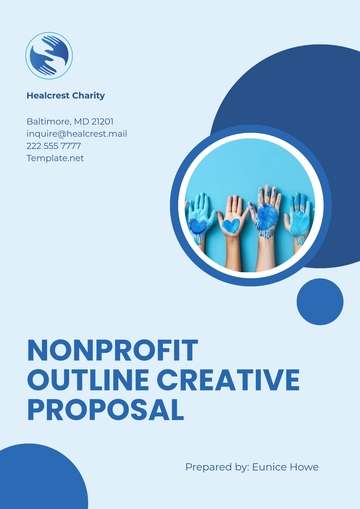Free Non- Profit Research Proposal
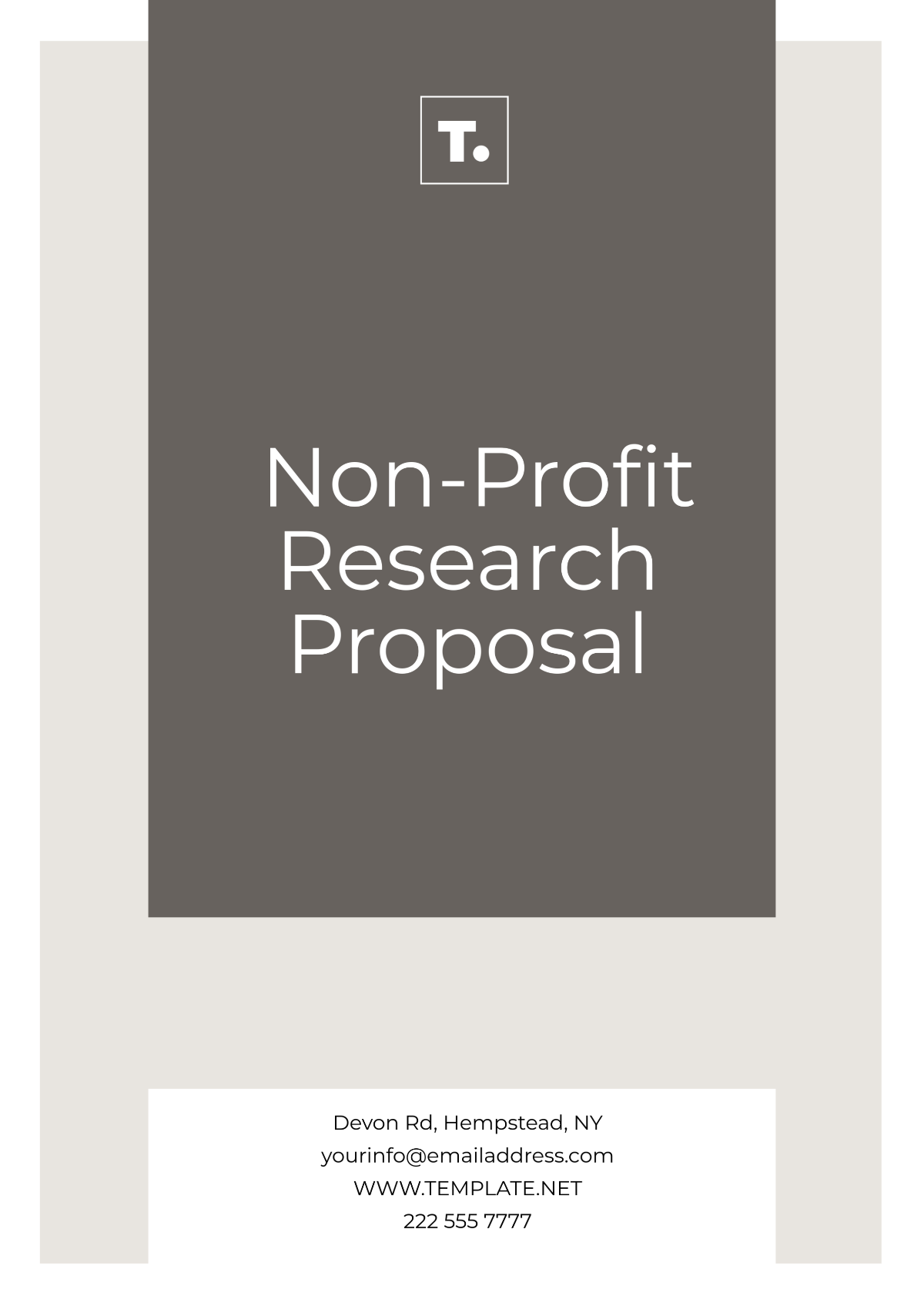
Introduction
In recent years, there has been an increasing demand for sustainable agricultural practices to mitigate environmental impacts while ensuring food security. This proposal outlines a comprehensive plan to establish a non-profit research organization dedicated to promoting innovative sustainable farming methods. Our objective is to pioneer solutions that enhance productivity and sustainability in agriculture, bridging the gap between modern science and traditional practices.
Background
Sustainable agriculture seeks to maintain or enhance environmental integrity and economic viability without compromising resources for future generations. Despite its importance, the adoption of sustainable practices has been slow due to limited research on viable strategies tailored to diverse ecosystems. Our organization intends to fill this gap through research, education, and policy advocacy.
Organization’s Role and Vision
Our vision is to become a leading voice in sustainable agriculture, influencing policy, providing education, and conducting cutting-edge research. We aim to collaborate with local farmers, academic institutions, and governmental bodies to foster an integrated approach toward sustainable farming.
Research Objectives
Develop techniques to improve soil health and fertility sustainably.
Investigate crop varieties that are more resilient to climate change.
Promote integrated pest management to minimize chemical usage.
Research water conservation methods tailored to various ecosystems.
Analyze socio-economic impacts of sustainable farming practices on communities.
Methodology
Phase 1: Literature Review and Baseline Study
We will conduct a comprehensive literature review to establish a knowledge baseline and identify gaps in current research. A baseline study will then be conducted in targeted regions to understand the current state of agricultural practices and resource uses.
Phase 2: Field Research and Pilot Projects
In partnership with local farms, we will implement pilot projects to test innovative ideas and practices. These pilots will be monitored, and data will be gathered to evaluate their efficacy and scaleability.
Phase 3: Data Analysis and Dissemination
Collected data will undergo rigorous analysis to derive actionable insights and recommendations. Our findings will be shared through publications, workshops, and conferences to promote best practices widely.
Phase 4: Policy Advocacy and Education
Our organization will work on drafting policy recommendations aimed at supporting sustainable agricultural practices at local and national levels. In addition, educational programs will be designed to train farmers and other stakeholders.
Budget and Resources
Item | Estimated Cost | Description |
|---|---|---|
Personnel | $500,000 | Salaries for researchers, administrative staff, and project managers |
Field Equipment | $100,000 | Tools and machinery needed for pilot projects |
Facilities | $150,000 | Office space, laboratories, and meeting venues |
Operational Costs | $50,000 | Utilities, travel, and communications |
Publications and Outreach | $30,000 | Costs associated with conferences, workshops, and publication of findings |
Implementation Timeline
The proposed timeline for the project is set over a 5-year period:
Year 1: Set up organization, conduct baseline study, begin literature review.
Year 2: initiate field research through pilot projects.
Year 3: Continue field research and begin data analysis.
Year 4: Disseminate initial findings; initiate policy advocacy and educational programs.
Year 5: Evaluate project outcomes, scale successful models, and plan for future expansion.
Conclusion
By establishing a dedicated non-profit research organization focused on sustainable agriculture, we can significantly contribute to developing practices that conserve natural resources and ensure long-term agricultural productivity. Our project aims to align with global sustainable development goals, making a tangible impact on environmental preservation and food security.
- 100% Customizable, free editor
- Access 1 Million+ Templates, photo’s & graphics
- Download or share as a template
- Click and replace photos, graphics, text, backgrounds
- Resize, crop, AI write & more
- Access advanced editor
The Non-Profit Research Proposal Template, offered by Template.net, is a highly customizable and downloadable solution designed to streamline your proposal creation process. This printable template allows for easy editing, ensuring you can tailor it to your organization's specific needs. Fully editable in our AI Editor Tool, it ensures a smooth, efficient experience while crafting professional, compelling proposals for your non-profit initiatives.
You may also like
- Business Proposal
- Research Proposal
- Proposal Request
- Project Proposal
- Grant Proposal
- Photography Proposal
- Job Proposal
- Budget Proposal
- Marketing Proposal
- Branding Proposal
- Advertising Proposal
- Sales Proposal
- Startup Proposal
- Event Proposal
- Creative Proposal
- Restaurant Proposal
- Blank Proposal
- One Page Proposal
- Proposal Report
- IT Proposal
- Non Profit Proposal
- Training Proposal
- Construction Proposal
- School Proposal
- Cleaning Proposal
- Contract Proposal
- HR Proposal
- Travel Agency Proposal
- Small Business Proposal
- Investment Proposal
- Bid Proposal
- Retail Business Proposal
- Sponsorship Proposal
- Academic Proposal
- Partnership Proposal
- Work Proposal
- Agency Proposal
- University Proposal
- Accounting Proposal
- Real Estate Proposal
- Hotel Proposal
- Product Proposal
- Advertising Agency Proposal
- Development Proposal
- Loan Proposal
- Website Proposal
- Nursing Home Proposal
- Financial Proposal
- Salon Proposal
- Freelancer Proposal
- Funding Proposal
- Work from Home Proposal
- Company Proposal
- Consulting Proposal
- Educational Proposal
- Construction Bid Proposal
- Interior Design Proposal
- New Product Proposal
- Sports Proposal
- Corporate Proposal
- Food Proposal
- Property Proposal
- Maintenance Proposal
- Purchase Proposal
- Rental Proposal
- Recruitment Proposal
- Social Media Proposal
- Travel Proposal
- Trip Proposal
- Software Proposal
- Conference Proposal
- Graphic Design Proposal
- Law Firm Proposal
- Medical Proposal
- Music Proposal
- Pricing Proposal
- SEO Proposal
- Strategy Proposal
- Technical Proposal
- Coaching Proposal
- Ecommerce Proposal
- Fundraising Proposal
- Landscaping Proposal
- Charity Proposal
- Contractor Proposal
- Exhibition Proposal
- Art Proposal
- Mobile Proposal
- Equipment Proposal
- Student Proposal
- Engineering Proposal
- Business Proposal

